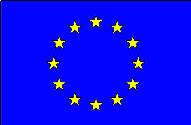Topic: Foreign Relations
 May 13, 2005. Yesterday the Turkmen capital was a place of holding the 6th sitting of the European Union – Turkmenistan Joint Commission. A representative delegation of the European Commission and the EU countries headed by the head of the Directorate General for External Relations Huge Patrick Mingarelli took part in the meeting.
May 13, 2005. Yesterday the Turkmen capital was a place of holding the 6th sitting of the European Union – Turkmenistan Joint Commission. A representative delegation of the European Commission and the EU countries headed by the head of the Directorate General for External Relations Huge Patrick Mingarelli took part in the meeting. The Turkmen party was represented by a governmental delegation whose members were approved by the corresponding resolution of the President of Turkmenistan Saparmurat Niyazov.
As it is known, a new stage of the co-operation between Turkmenistan and the EU began in November 2003 when President Saparmurat Niyazov sent a message to the address of the EU President, the Prime Minister of the Republic of Italy Silvio Berlusconi and the President of the European Commission Romano Prodi and confirmed Turkmenistan’s readiness for development of the constructive dialogue and fruitful co-operation in the international interests and welfare. As the head of the state stressed, Turkmenistan was always open for co-operation with the European structures on the basis of the concrete and efficient joint actions on a wide range of the issues including those of human dimension.
The dialogue on the priorities and prospects of the partnership between Turkmenistan and the European Community serving the aims of strengthening the potential of peace, good will and international co-operation was also continued during the present meeting.
The parties exchanged their views on the issues of mutual interest. The representatives of the European Commission specially stressed the growing interest of the European structures in the possibility of establishing a full-scale dialogue with Turkmenistan and expressed their support of the further strengthening trade and economic relations and realisation of the joint programmes and projects.
Practical steps made by Turkmenistan for stirring up the relations with the EU and the EU countries were highly appreciated by the Joint Commission members. Noting the high rates of the economic growth of Turkmenistan, the European partners called that factor a basic one for efficient fulfilment of the reforms both in the sphere of socio-economic development of the country and that of improvement of the democratic institutions of the state government.
Stressing the special significance of the Ashgabat forum in the context of the further strengthening the mutually advantageous relations between the EU and Turkmenistan, its participants stated the necessity of the regular contacts for the purpose of forming an efficient model of co-operation meeting the realia of the time and the spirit of the mutually advantageous and equal partnership.
Commenting on the visit of the EU delegation to Turkmenistan, the head of the Directorate General for External Relations Huge Patrick Mingarelli said: “ It is good that our present visit to Ashgabat was held within the framework of the established dialogue. Recently, we had managed to establish close co-operation in different spheres including agriculture, power engineering and environment protection. The participation of Turkmenistan in the regional TACIS programmes can prove it. As at present we face the common problems and tasks of further development, then our mutual stirring-up of solving those tasks will help us in our efforts to continue the dialogue. I am sure that co-operation between the European Union and Turkmenistan will be steadily strengthened.”
In his turn, the representative of the Duchy of Luxemburg Carlo Krieger said: “ I came to Ashgabat to discuss the theme connected with the human rights and freedoms alongside with the other ones. I consider the initiative of the government of Turkmenistan to be very important and I am sure that by means of the fruitful dialogue we will be able to co-ordinate our positions and find proper solutions.”
State Information Agency of Turkmenistan (TDH)
Posted by countryturkmenistan
at 11:01 PM
Updated: Friday, 1 July 2005 2:09 PM
